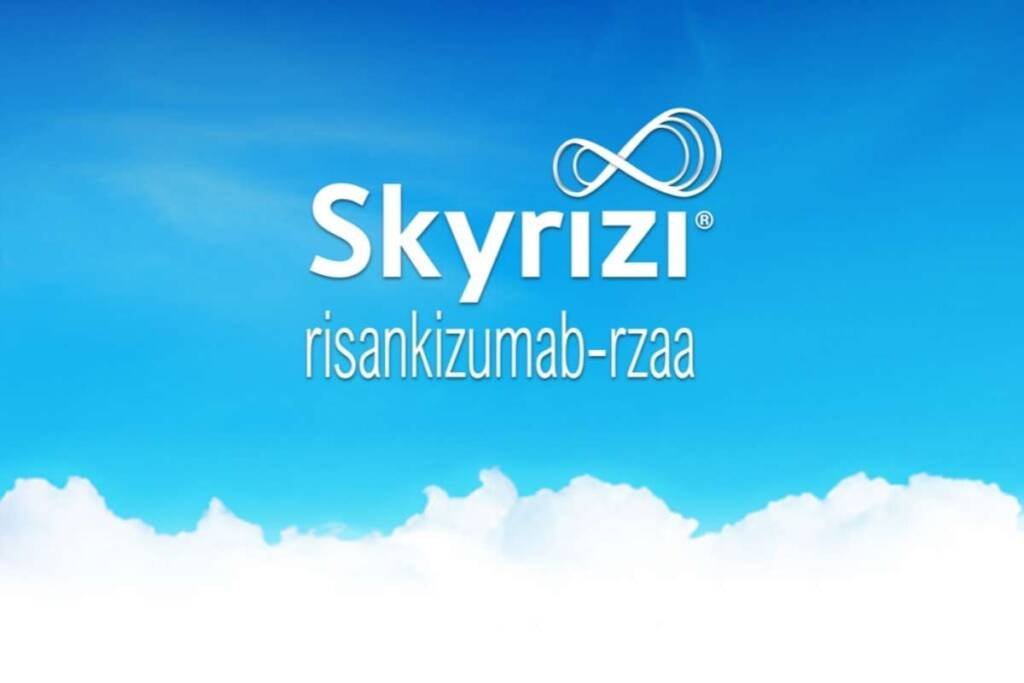Source – Abbvie
On July 26, 2023 AbbVie announced the publication of results from the Phase IV IMMpulse study in the British Journal of Dermatology, comparing the efficacy and safety of Skyrizi (risankizumab) with Otezla (apremilast) in adult patients with moderate plaque psoriasis eligible for systemic therapy. The study achieved all primary and secondary endpoints, and no new safety concerns were identified.
“This study highlights the efficacy of Skyrizi compared to Otezla in helping systemic-eligible patients achieve high levels of skin clearance and reinforces the safety profile observed in previous studies. These head-to-head data are crucial to help patients and their doctors make informed treatment decisions for uncontrolled disease and add to the body of evidence supporting Skyrizi as a treatment option for adults living with moderate psoriasis.”
– Mudra Kapoor, M.D., vice president, global medical affairs, immunology, AbbVie
Key findings from this open-label, efficacy assessor-blinded study include:
- At Week 16, a significantly higher proportion of patients receiving risankizumab achieved the Period A co-primary endpoints of Psoriasis Area and Severity Index (PASI) 90 and Static Physician’s Global Assessment (sPGA) 0/1 compared to those on apremilast [PASI 90: 55.9% (66/118) vs. 5.1% (12/234); sPGA 0/1: 75.4% (89/118) vs. 18.4% (43/234); both with P<0.001].
- The proportion of patients achieving the ranked secondary endpoint of PASI 75 at Week 16 was significantly higher in the risankizumab group compared to the apremilast group [84.7% (100/118) vs. 18.8% (44/234); P<0.001].
- At Week 52, among patients who did not achieve PASI 75 after 16 weeks of apremilast treatment, a significantly higher proportion of patients re-randomized to receive risankizumab achieved the Period B primary endpoint of PASI 90 compared to those re-assigned to continue apremilast treatment [72.3% (60/83) vs. 2.6% (2/78); P<0.001].
- After 52 weeks of continuous treatment, 73.7% of risankizumab patients achieved PASI 90 and 63.6% achieved PASI 100, whereas only 4.5% and 2.7% of apremilast patients achieved PASI 90 and PASI 100, respectively (nominal p-value <0.001 for both comparisons).
“As a physician, it’s crucial to validate different options that can achieve high treatment targets, and this study provides practice-relevant data. These data reinforce the efficacy of Skyrizi for use in systemic-eligible moderate psoriasis patients with an observed safety profile similar to prior studies.”
– lead study investigator, Linda Stein Gold, M.D., director of clinical research, department of dermatology, Henry Ford Health System
The safety profile of risankizumab was consistent with previous studies, with no new safety signals observed. The most common adverse events reported in risankizumab-treated patients were COVID-19, nasopharyngitis, and upper respiratory tract infection, while diarrhea, nausea, and headache were more frequent among apremilast-treated patients. Serious adverse events occurred in a low percentage of patients in both treatment groups. The study showed that treatment satisfaction was significantly higher in risankizumab-treated patients at Week 16, as assessed by the Treatment Satisfaction Questionnaire for Medication version 9 (TSQM-9).
Skyrizi is developed and commercialized globally through a collaboration between Boehringer Ingelheim and AbbVie, with AbbVie leading the efforts in this partnership.





























